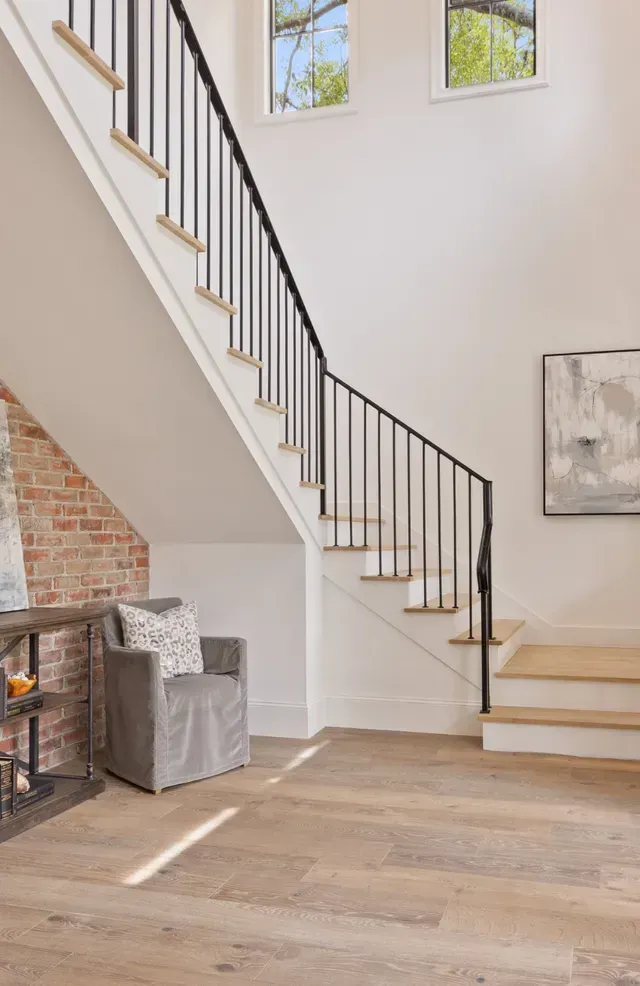Resources
Get Matched to the Right Builder
FIND THE PERFECT CUSTOM HOME BUILDER WITH OUR FREE ASSESSMENT
Tired of feeling overwhelmed? Look no further. We'll match you to the right builder in the Houston area and save you months of valuable time and money you'd spend trying to find one on your own. Click below to get started!
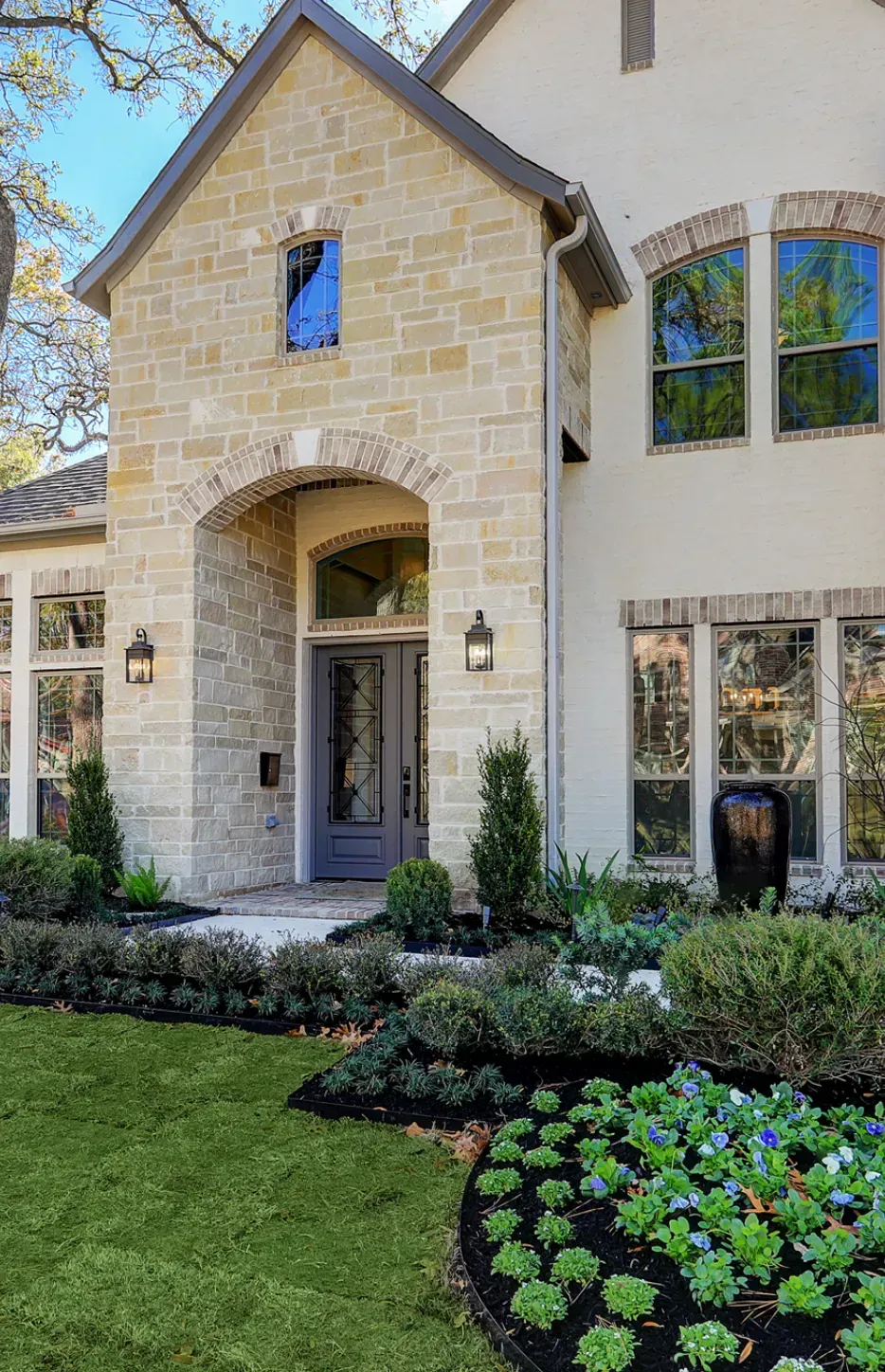
Download The Ultimate Custom Home Building Guide
A Step-by-step guide to building your custom dream home.

Download The Ultimate Custom Home Building Checklist
Finance

Finding Lot

Best Builder

Explore Our Gallery of Custom Homes
Browse our finished projects that display the craftsmanship of the builders we’ve matched with homeowners – turning dreams into reality.
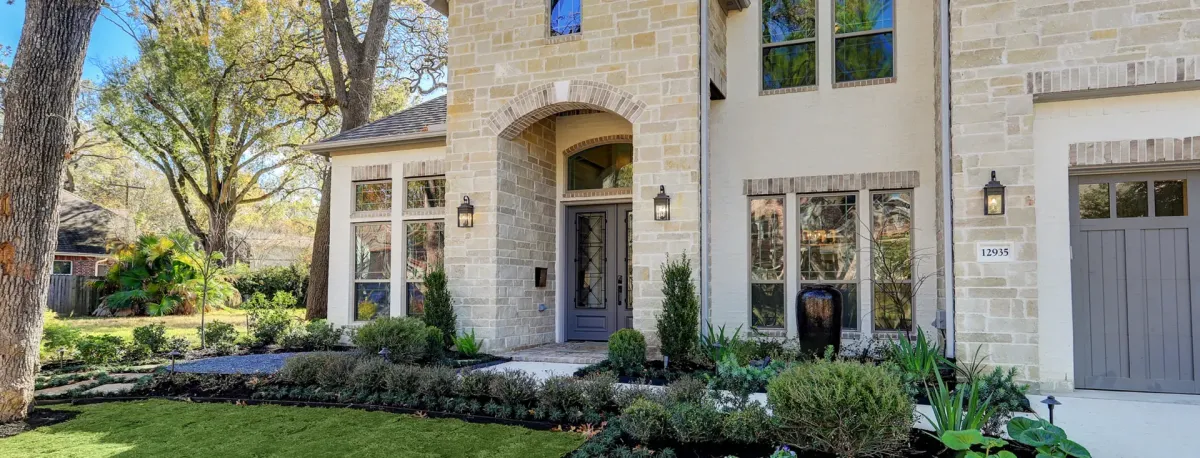
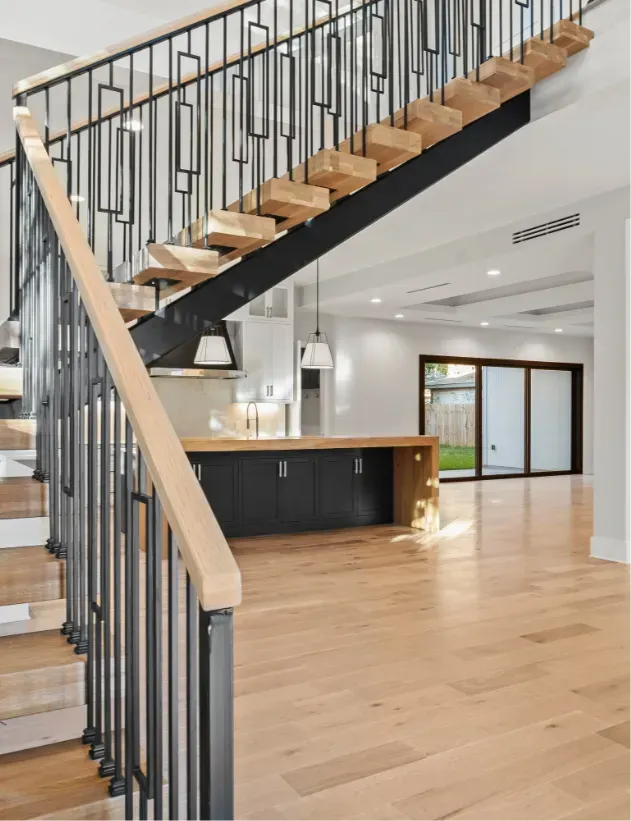

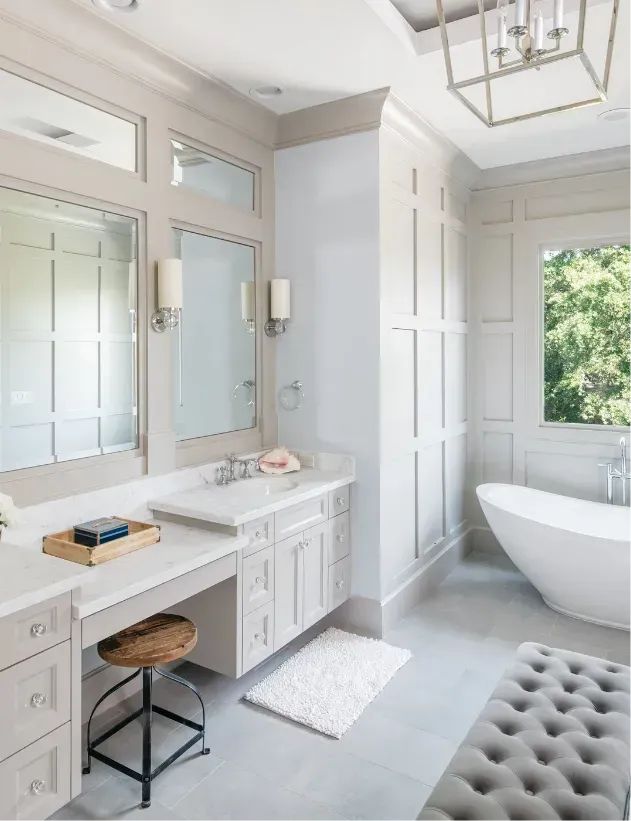
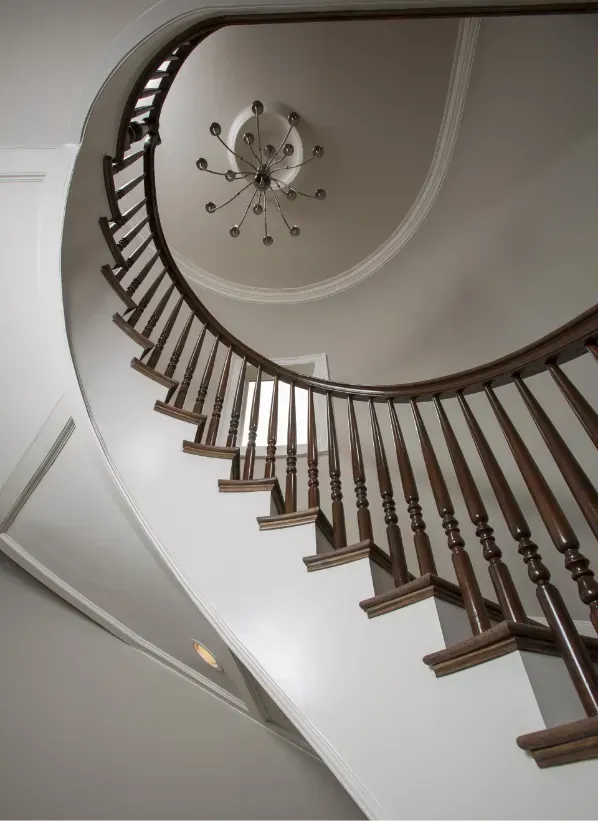
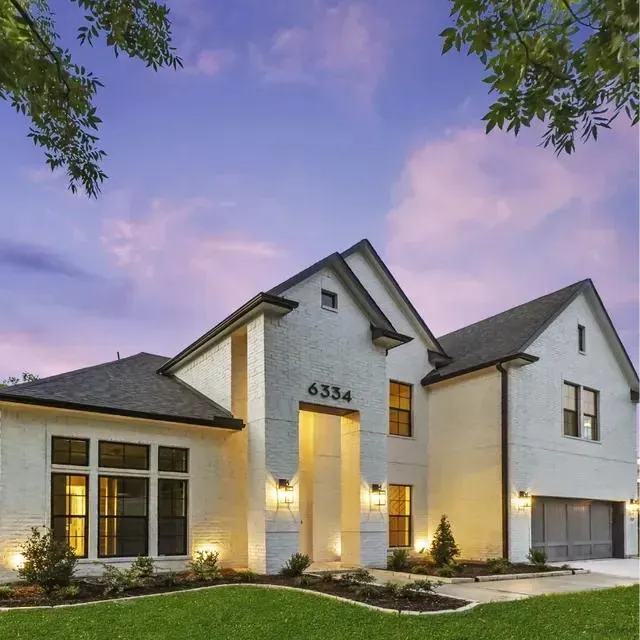
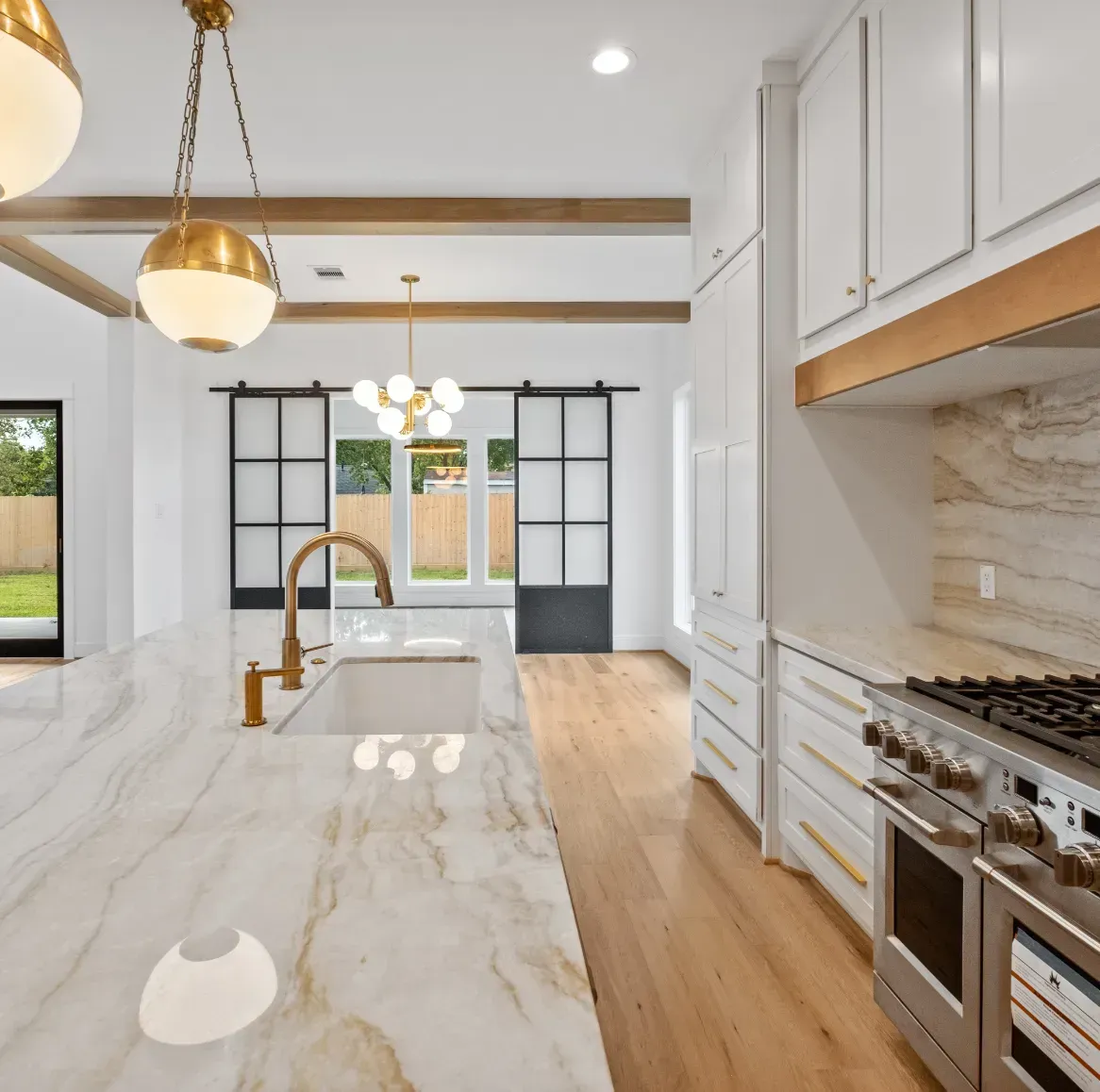
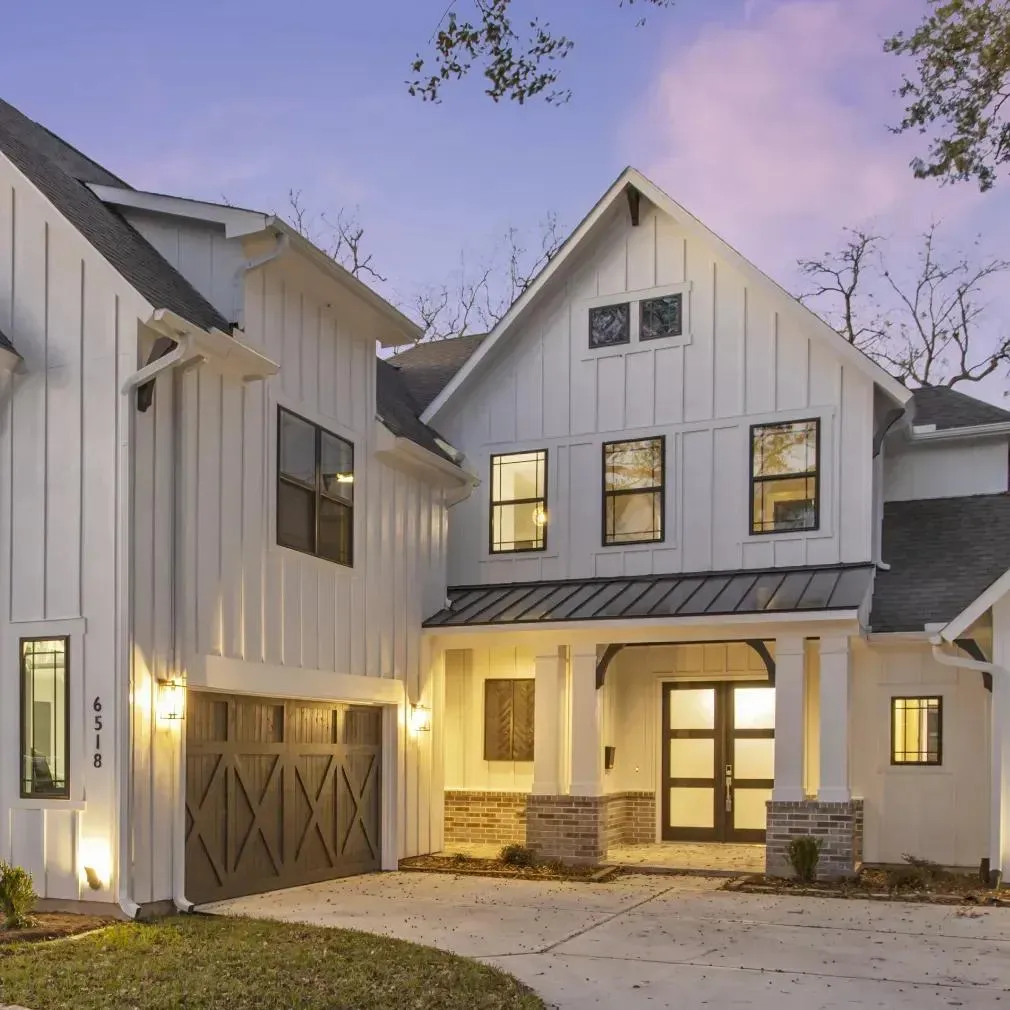
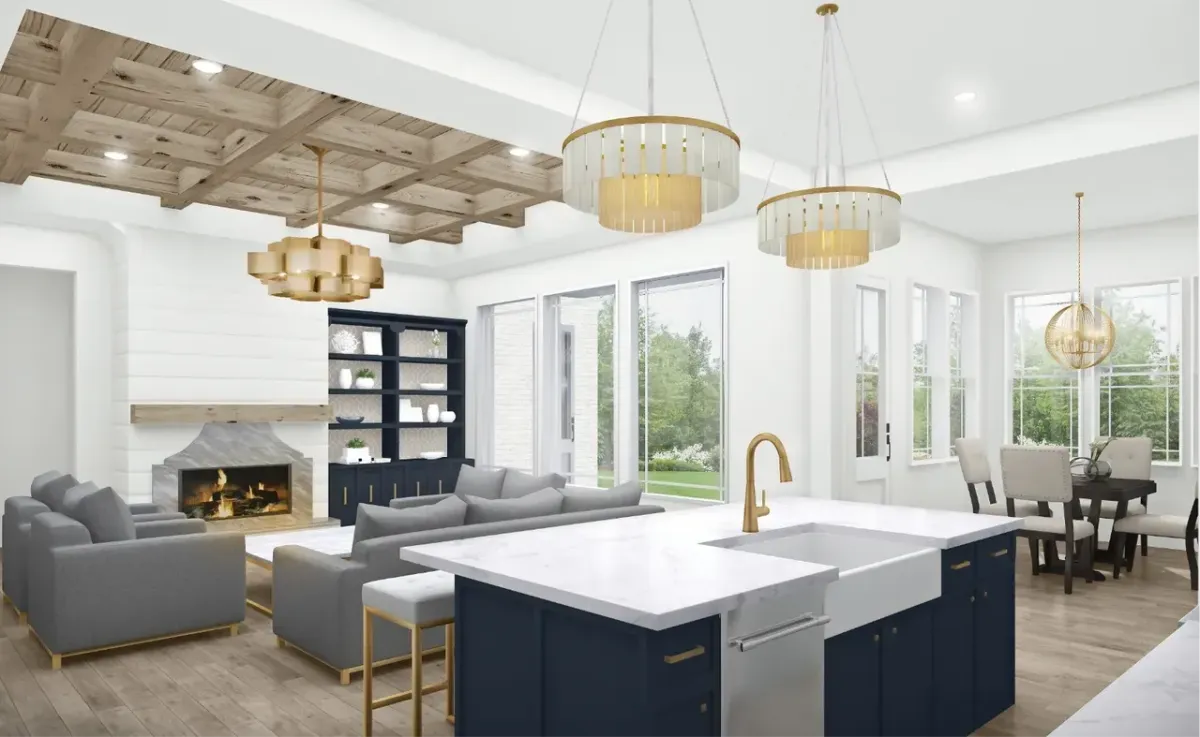
BLOG
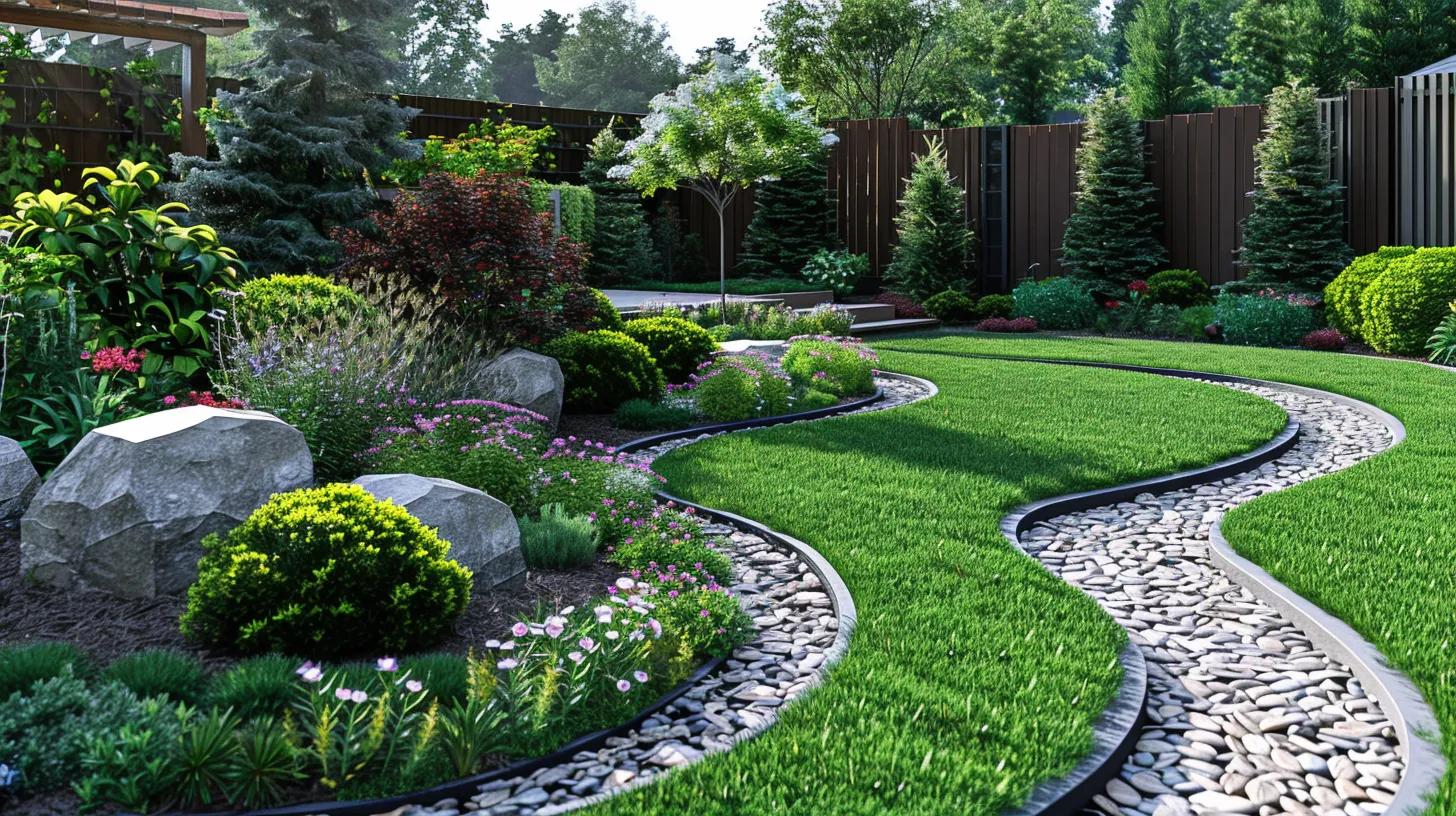
What Are the Best Landscaping Options for Custom Homes?
Custom homes deserve exceptional outdoor spaces. This guide explores the best landscaping options for custom homes, focusing on plant selection, hardscape elements, and outdoor living features. You'll discover how to create stunning green spaces that enhance your home's value and provide privacy. From xeriscaping techniques to incorporating vegetable gardens, we'll show you how to design a landscape that complements your custom home construction and reflects your personal style.
Key Takeaways
Effective landscape design involves assessing property features, climate, and personal preferences
Plant selection should focus on native, drought-tolerant species for sustainability and low-maintenance
Hardscape elements like patios and walkways enhance outdoor living spaces and accessibility
Outdoor kitchens, fire pits, and water features add value and functionality to custom homes
Regular maintenance and sustainable practices ensure long-lasting beauty in custom home landscapes
Understanding Landscaping Options for Custom Homes

Effective landscape design for custom homes involves assessing property features, considering local climate and soil conditions, and evaluating personal aesthetic preferences. This approach ensures a harmonious outdoor space that complements the home's architecture while incorporating practical elements like rainwater harvesting and optimal light use. The following sections explore key ideas for creating a functional and beautiful outdoor room.
Assessing the Unique Features of Your Property
Assessing a property's unique features is crucial for successful custom home landscaping. Homeowners should evaluate their front yard landscaping potential, considering natural slopes, vegetation, and soil types. This assessment helps determine suitable plant species, including those that attract pollinators and identifies areas for hardscaping elements such as a deck. Understanding these features allows for a harmonious integration of the landscape with the custom home-building process, creating a cohesive outdoor space.
Considering Local Climate and Soil Conditions
Local climate and soil conditions play a crucial role in landscaping for custom homes. Homeowners should select plants that thrive in their specific environment, considering factors such as rainfall, temperature ranges, and soil composition. For instance, drought-resistant plants and efficient water management systems are essential in arid regions. Incorporating elements like a fireplace or water feature can enhance the outdoor living space while complementing the home's architecture. Soil analysis helps determine the need for amendments or raised beds, ensuring healthy plant growth and stability for outdoor kitchens' hardscaping elements such as countertops.
Evaluating Personal Aesthetic Preferences
Evaluating personal aesthetic preferences is crucial when creating a landscaping oasis for custom homes. Homeowners should consider their desired style: a formal garden, a natural woodland, or a modern minimalist design. This process involves careful attention to detail, including the selection of furniture, plants, and hardscaping elements that align with the overall vision. By focusing on personal tastes and working within a set budget, homeowners can transform their outdoor spaces into their dream landscapes.
Assess property features
Consider local climate and soil
Evaluate personal aesthetic preferences
Select appropriate plants and materials
Incorporate functional elements
Create a cohesive design
Plant Selection for Custom Homes

Plant selection for custom homes involves choosing native plants for better adaptation, integrating perennials and annuals for seasonal appeal, and selecting drought-tolerant species for sustainability. These choices enhance outdoor spaces, complementing features like fountains and brick elements. Proper plant selection creates visually appealing landscapes that thrive in local conditions, requiring less maintenance and water.
Choosing Native Plants for Better Adaptation
Choosing native plants for custom home landscaping offers numerous benefits. These plants adapt well to local conditions, requiring less maintenance and water. Landscaping contractors often recommend native species for their resilience and ability to create a harmonious outdoor living space. Native plants can enhance the patio area, providing a natural focus for meditation or relaxation. They also seamlessly blend the indoor living room with the outdoor environment, creating a cohesive design:
Adapt easily to local climate and soil
Require less maintenance and water
Enhance biodiversity and support local ecosystems
Create a natural transition between indoor and outdoor spaces
Provide year-round visual interest
Integrating Perennials and Annuals for Seasonal Appeal
Integrating perennials and annuals in custom home landscapes creates visual interest and seasonal appeal year-round. Evergreen plants provide a constant backdrop, while colorful annuals offer changing displays throughout the year. Homeowners can strategically place these plants around features like swimming pools or wooden decks to enhance the overall aesthetic. By considering the local climate, landscape designers can select a mix of plants that thrive in specific conditions, ensuring a vibrant and dynamic outdoor space that complements the house's architecture.
Selecting Drought-Tolerant Species for Sustainability
Selecting drought-tolerant species for custom home landscaping promotes sustainability and reduces water consumption. Homeowners can enhance backyard visibility by incorporating drought-resistant trees and plants that thrive in arid conditions. For example, slate pathways lined with drought-tolerant shrubs create an attractive, low-maintenance landscape. These resilient plants also complement outdoor kitchen areas, providing a lush backdrop without excessive water needs.
Hardscape Elements That Complement Custom Homes

Hardscape elements are crucial in custom home landscaping, enhancing outdoor living spaces and property value. This section explores incorporating patios and decks, designing accessible walkways, and utilizing retaining walls. These features complement custom home construction, supporting smart home integration and wildlife-friendly designs while optimizing renovation budgets.
Incorporating Patios and Decks for Outdoor Living
Incorporating patios and decks into custom home landscaping creates versatile outdoor living spaces. These structures serve as extensions of the home, providing areas for relaxation, entertainment, and home improvement projects. Homeowners can enhance these spaces with perennial plantings and strategic shrub placement, creating a seamless transition between indoor and outdoor areas. Proper pest control measures ensure these outdoor living areas remain enjoyable year-round, while thoughtful landscaping design integrates them naturally into the surrounding environment.
Designing Walkways That Enhance Accessibility
Designing walkways that enhance accessibility is crucial for custom home landscaping. A skilled builder can incorporate paths that connect the lawn, fire pit, and other outdoor features, enhancing beauty and functionality. These well-constructed walkways not only improve the property's overall aesthetics but also ensure safe and easy navigation for all family members and guests, regardless of mobility levels.
Utilizing Retaining Walls for Function and Style
Retaining walls serve both functional and aesthetic purposes in custom home landscaping. These structures effectively manage soil erosion and create level areas on sloped terrain while also complementing the home's architectural style. Homeowners can incorporate retaining walls to define spaces, such as separating a sidewalk from a hedge, or to create a unique atmosphere in outdoor living areas. When designed with attention to detail and backed by a solid warranty, retaining walls become striking features that enhance the overall landscape design.
Outdoor Living Features That Enhance Value

Outdoor living features enhance custom home value and lifestyle. This section explores installing outdoor kitchens for culinary experiences, creating inviting fire pits for gatherings, and adding swimming pools or water features for relaxation. When built with quality materials like glass and pavers, these elements integrate seamlessly into landscape design, creating functional and attractive outdoor spaces.
Installing Outdoor Kitchens for Culinary Experiences
Installing outdoor kitchens enhances custom homes by creating culinary experiences in the natural environment. Homeowners can incorporate essential elements like a sink and heat sources, ensuring functionality while blending with the landscape. Proper fencing helps define the space and provides protection from pests, creating a comfortable outdoor cooking area. These kitchens offer a unique way to enjoy the outdoors while preparing meals, adding value to the property.
Creating Inviting Fire Pits for Gatherings
Creating inviting fire pits for gatherings enhances custom home landscapes by providing a focal point for outdoor socializing. These features complement the overall garden design, offering a warm and cozy atmosphere that extends the usability of outdoor spaces. Homeowners can integrate fire pits with existing elements like porches or near garages, using complementary color schemes to ensure a cohesive look. Well-designed fire pits add aesthetic value and create functional areas for year-round enjoyment, making them a valuable addition to any custom home's outdoor living space.
Adding Swimming Pools or Water Features for Relaxation
Adding swimming pools or water features to custom homes enhances relaxation and aesthetic appeal. Homeowners can incorporate these elements alongside metal sculptures and well-designed pathways, creating a cohesive outdoor space. Proper fertilizer application ensures lush vegetation surrounds these water features, complementing the overall landscape design. These additions provide a serene environment for relaxation and increase the property's value and appeal.
Landscaping Techniques for Better Privacy
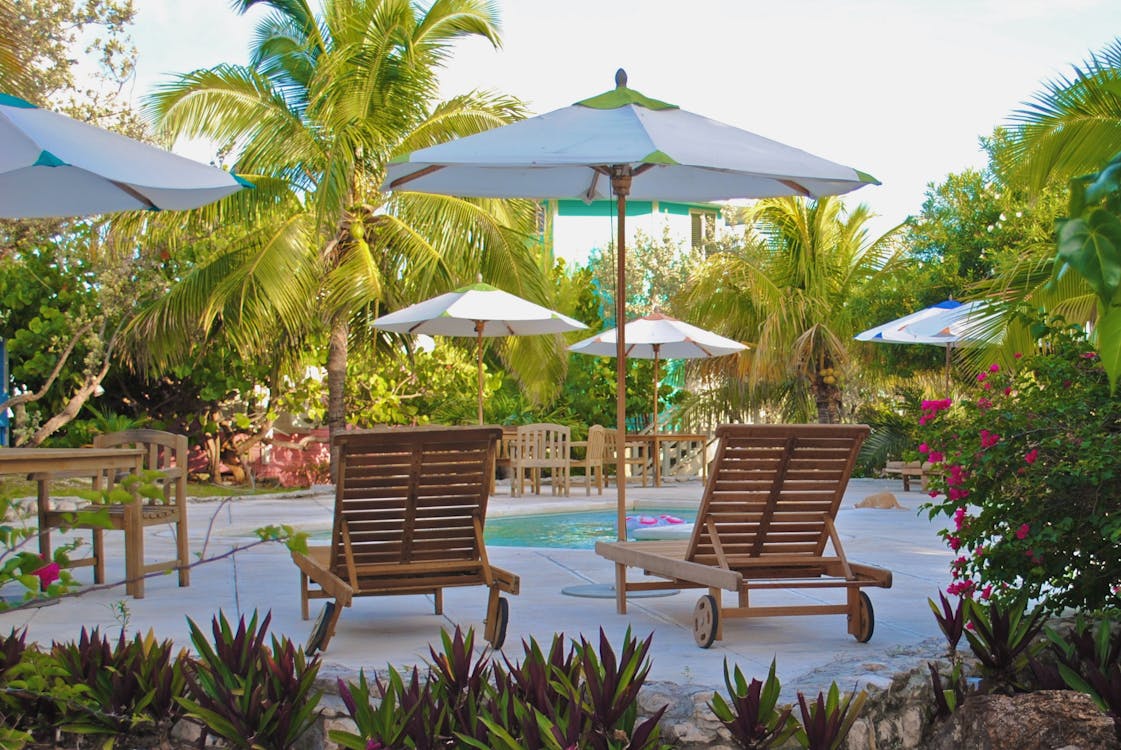
Landscaping techniques for privacy enhance custom homes, providing seclusion and style. Strategic planting creates natural barriers while fencing solutions blend with nature. Vertical options like trellises and arbors offer space-efficient privacy. These methods complement floor plans and increase property value, benefiting both homeowners and real estate agents. Proper maintenance ensures long-lasting privacy solutions.
Employing Strategic Planting for Natural Barriers
Strategic planting creates natural barriers for custom homes, enhancing privacy and aesthetics. Homeowners can utilize native plants to form living screens, complementing outdoor features like murals or wine cellars. These plantings serve as green alternatives to traditional fencing, softening the landscape around doors and entryways while providing a canvas for outdoor art installations.
Designing Fencing Solutions That Blend With Nature
Designing fencing solutions that blend with nature enhances privacy for custom homes while maintaining a natural aesthetic. Homeowners can incorporate pergolas with climbing vines or install wooden fences that complement nearby oak trees. Adding a pond near the fence creates a tranquil barrier, while an outdoor oven can be integrated into the fencing design for a functional and attractive element. These natural-looking fences provide privacy without sacrificing the beauty of the landscape.
Utilizing Trellises and Arbors for Vertical Solutions
Trellises and Arbors offer vertical privacy solutions for custom homes, maximizing garden space while creating visual interest. Homeowners can paint these structures to match their home's roof or shed, ensuring a cohesive look. By incorporating climbing plants, these vertical elements transform into living privacy screens, enhancing the landscape while providing seclusion for outdoor living areas.
Maintenance Practices for Long-Lasting Landscapes

Effective maintenance practices ensure long-lasting landscapes for custom homes. This section explores establishing regular care routines, implementing sustainable, eco-friendly practices, and performing seasonal upkeep. These strategies help maintain the beauty of front yard rock gardens, fruit trees, and butterfly-attracting plants, enhancing property value and appeal throughout the year.
Establishing a Regular Care Routine
Establishing a regular care routine is essential for maintaining the beauty and longevity of custom home landscapes. Custom home builders often recommend creating a schedule that includes watering, pruning, and fertilizing to keep outdoor living spaces thriving. This routine should also encompass the maintenance of hardscape elements like waterfalls, which add visual interest and soothing sounds to the landscape. By consistently caring for both plants and structures, homeowners can preserve the aesthetic appeal and functionality of their custom-built homes' outdoor areas.
Sustainable Practices for Eco-Friendly Landscaping
Sustainable practices for eco-friendly landscaping benefit both custom homes and the environment. Real estate professionals recommend implementing water conservation techniques through efficient irrigation systems and drought-resistant plant selection. Homeowners can install smart irrigation networks that adjust watering schedules based on weather conditions. Energy-efficient outdoor lighting reduces electricity consumption while enhancing the landscape's nighttime appeal. These practices not only conserve resources but also reduce maintenance costs and increase property value:
Install smart irrigation systems
Choose drought-resistant plants
Use energy-efficient outdoor lighting
Implement rainwater harvesting
Incorporate native plant species
Seasonal Upkeep to Enhance Aesthetic Appeal
Seasonal upkeep is crucial in enhancing the aesthetic appeal of custom home landscapes. Homeowners should apply fresh mulch around plants and in garden beds to maintain moisture and suppress weeds, improving the overall look of their outdoor space. Regular maintenance of structures like gazebos keeps them in top condition, contributing to the property's curb appeal. As seasons change, adjusting the outdoor furniture layout and decor on patios or deck floors can create a fresh, inviting atmosphere that complements the home's exterior.
Conclusion
Effective landscaping for custom homes enhances property value, creates functional outdoor spaces, and complements the home's architecture. By carefully assessing property features, considering local climate conditions, and selecting appropriate plants and hardscape elements, homeowners can create a harmonious and sustainable landscape that reflects their personal style. Incorporating outdoor living features like patios, kitchens, and water elements increases enjoyment and adds significant value to the property. Regular maintenance and the implementation of eco-friendly practices ensure the longevity and beauty of these custom landscapes, creating a lasting impression and a seamless integration between indoor and outdoor living spaces.
Contact Us Today To Learn More
